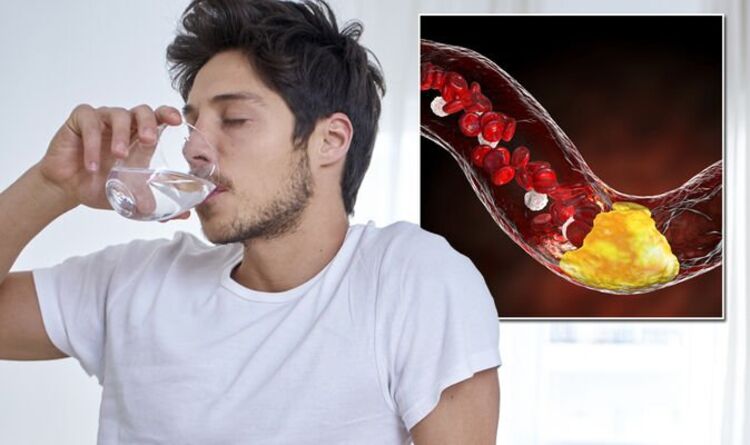This Morning's Dr Chris discusses the signs of high cholesterol
We use your sign-up to provide content in ways you’ve consented to and to improve our understanding of you. This may include adverts from us and 3rd parties based on our understanding. You can unsubscribe at any time. More info
Unlike visceral fat, however, there is no-one type of cholesterol; there are two.
These are known as HDL and LDL.
HDL stands for high-density lipoprotein; this is the type of cholesterol required for improving cardiovascular health.
For this reason, HDL is often referred to as ‘good’ cholesterol.

On the other hand, LDL, or low-density lipoprotein, is referred to as ‘bad’ cholesterol as it forms as a plaque in the arteries increasing blood pressure and the risk of heart disease.
When a patient has high cholesterol, it means they need to reduce how much LDL cholesterol they have in their system.
The NHS has a number of tips on how this can be done.
Amongst these is reducing alcohol intake.
Specifically, the NHS recommends a person should: “avoid drinking more than 14 units of alcohol a week, have several drink free days each week [and] avoid drink lots of alcohol in a short time (binge drinking)”.
Other tips for reducing cholesterol include:
• Eating less fatty food
• Exercising more
• Quitting smoking.

Medications are also available to treat high cholesterol.
Known as statins, they work by reducing the rate of LDL cholesterol production in the liver.
If they are prescribed, they are normally meant to be taken for life and taken as a tablet once a day.
Statins aren’t the only medication for high cholesterol; ezetimibe, fibrates, bile acid sequestrants, bempedoic acid, alirocumab, evolocumab may also be prescribed.

Just like other medications, statins can result in side effects such as diarrhoea, headache, or nausea.
It is suggested by the NHS that patients should discuss the risk and benefits of statins with their doctor before they’re offered as: “The risks of any side effects have to be balanced against the benefits of preventing serious problems”.
As well as high cholesterol statins are used to reduce the risk of other cardiovascular events such as heart attacks and strokes.
For more information on cardiovascular diseases contact the NHS or consult with your GP.
Source: Read Full Article






